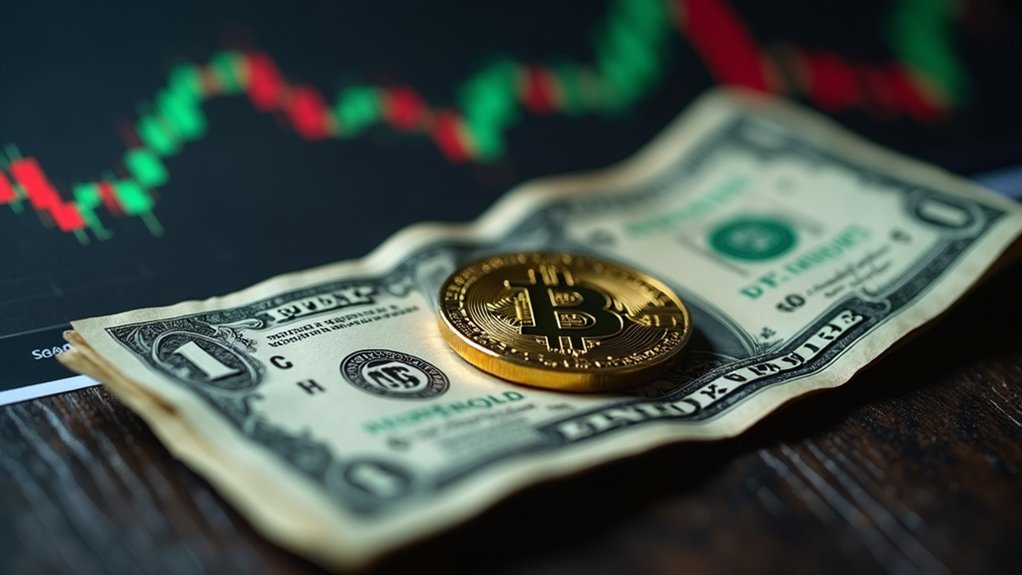When it comes to Trump’s tariffs, the market has been anything but stable. A whirlwind of uncertainty has engulfed investors, shaking their confidence and leaving them scratching their heads. The tariffs, targeting 15 countries like China, Canada, and Mexico, have sent Bitcoin’s price into a downward spiral. Just like that, the crypto world felt the sting. A proposed 25% levy on foreign-made cars? Fantastic. But hold on—there’s potential for a silver lining.
Initially, Bitcoin took a hit, tumbling down as traders rushed to safer shores. Risk-off sentiment prevailed, pushing investors away from high-risk assets like cryptocurrency. Who wants to gamble when the economy’s on shaky ground?
Yet, looking ahead, tariffs might just weaken the U.S. dollar, making Bitcoin seem like an attractive alternative. It’s a wild concept: as the dollar falters, Bitcoin could emerge as the hero in this chaotic saga. With economic uncertainty at its highest since 2000, 2008, and 2022, investors may increasingly turn to Bitcoin as a store of value. Recent trends indicate that gold has risen by 18% since the beginning of the year as investors seek safe havens. The limited supply of Bitcoin, capped at 21 million, adds to its appeal during times of economic distress.
As the U.S. dollar weakens, Bitcoin could rise as a beacon of hope in turbulent times.
Market volatility is the name of the game. Bitcoin’s price isn’t just a random number; it closely follows traditional assets. When stocks tremble, Bitcoin often mirrors that fear. Historical trends suggest economic downturns are looming. Let’s face it; nobody wants to be left holding the bag.
But perhaps, just perhaps, this chaos could propel Bitcoin’s adoption. After all, in times of financial distress, investors often seek out “stable” assets. The appeal of Bitcoin’s decentralized nature grows stronger when currencies wobble.
Inflationary pressures from tariffs might also spark interest in Bitcoin. Countries facing currency devaluation could look to this digital currency as a lifeline. It’s a hedge against instability, a potential refuge.
Sure, Bitcoin may have short-term price pressures, and mining costs could increase, but the long-term narrative could shift dramatically.





